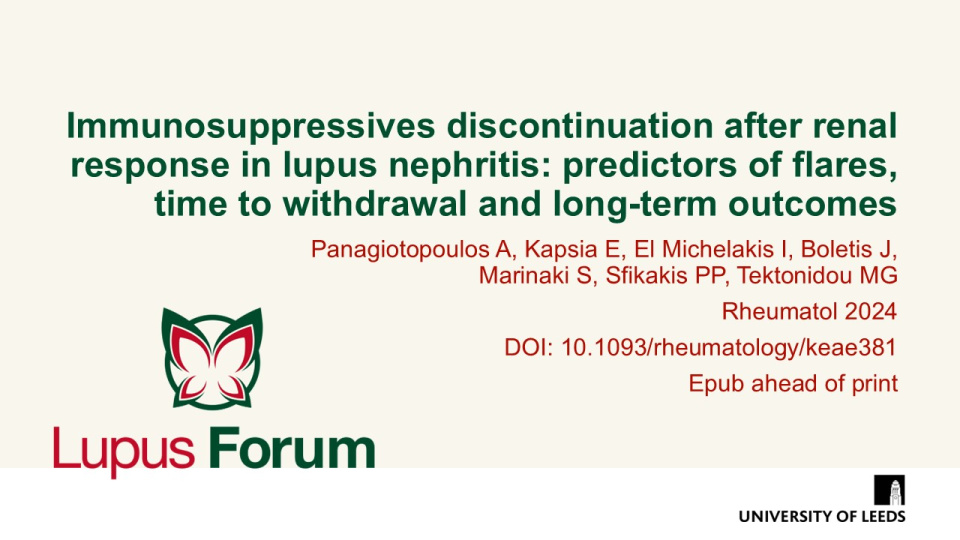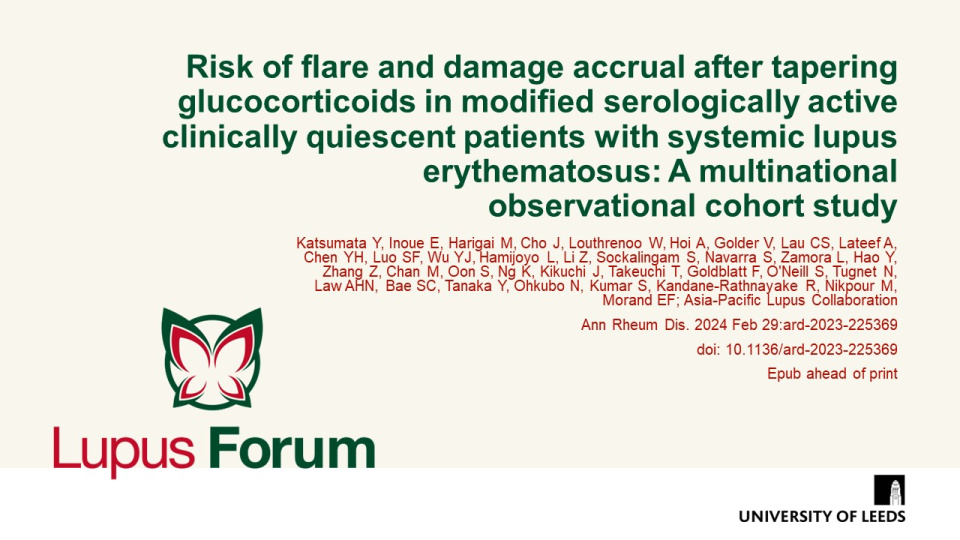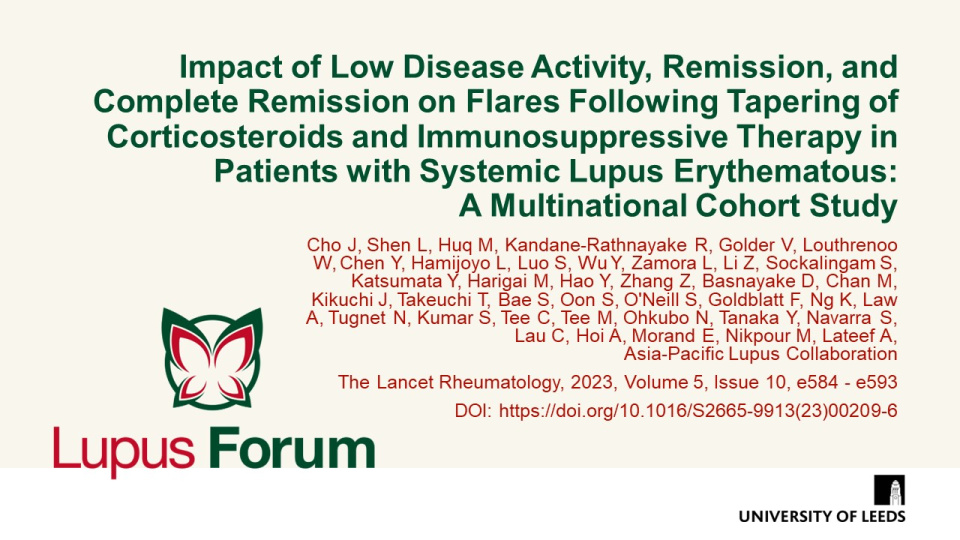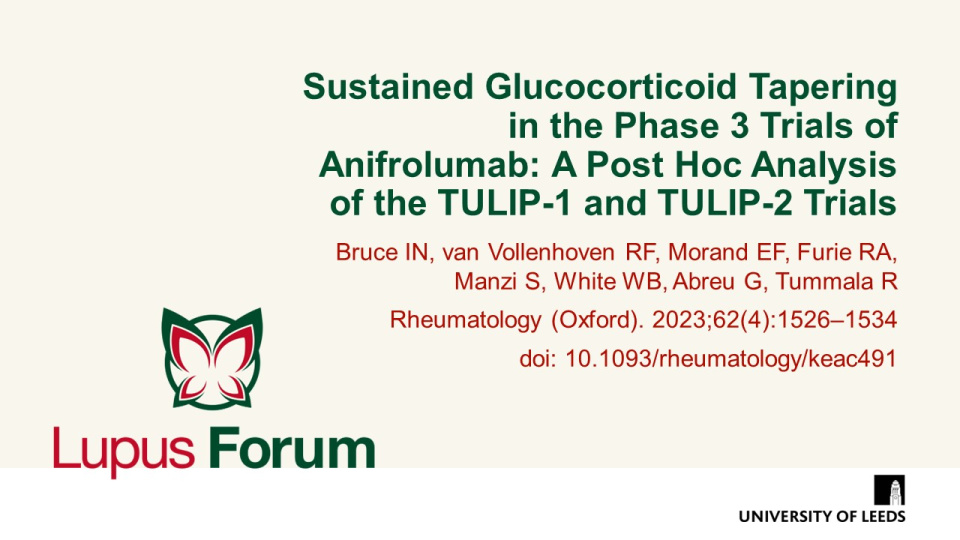Publications
Find coverage of the latest original articles on Lupus, focusing on those with data on therapeutic interventions and those that have clinical impact.
Immunosuppressives discontinuation after renal response in lupus nephritis: predictors of flares, time to withdrawal and long-term outcomes
Rheumatol 2024 DOI 10.1093/rheumatology/keae381 Epub ahead of print
This study by Panagiotopoulos, et al. showed that an early complete renal response achievement, persistent hydroxychloroquine use, and the maintenance of optimal low disease activity during follow-up in immunosuppressive (IS) tapering and discontinuation are fundamental in LN treatment. The authors also found that long-term renal outcomes are mainly associated with renal flares during IS tapering.
Belimumab Corticosteroid‑Sparing Treatment in Systemic Lupus Erythematosus: a Real‑Life Observational Study (BESST)
Rheumatol. Int. 2024 Apr 30:1–7 DOI: 10.1007/s00296-024-05589-2 https://pubmed.ncbi.nlm.nih.gov/38687385/
Belimumab confers an early and sustained corticosteroid-sparing effect after 3 months of treatment in SLE patients. This was demonstrated by a significant prednisone dose reduction that continued through months 6 and 12, and was sustained until month 24.
Risk of flare and damage accrual after tapering glucocorticoids in modified serologically active clinically quiescent patients with systemic lupus erythematosus: A multinational observational cohort study
Ann Rheum Dis. 2024 Feb 29:ard-2023-225369 doi: 10.1136/ard-2023-225369 Epub ahead of print
Flare risk did not increase following glucocorticoid tapering in modified serologically active clinically quiescent patients with SLE. They also found that antimalarial use was associated with decreased flare risk.
Impact of Low Disease Activity, Remission, and Complete Remission on Flares Following Tapering of Corticosteroids and Immunosuppressive Therapy in Patients with Systemic Lupus Erythematous: A Multinational Cohort Study
The Lancet Rheumatology, 2023, Volume 5, Issue 10, e584 - e593 DOI: https://doi.org/10.1016/S2665-9913(23)00209-6
In this study, tapering of corticosteroids or immunosuppressive therapy in patients in LLDAS, remission, or complete remission was associated with excess flares versus continuing with therapy. Tapering in complete remission was associated with lower odds of flares compared with tapering in LLDAS or remission. In addition, patients with longer sustained duration of LLDAS or remission at the time of tapering had lower odds of flare and longer time to flare versus those with a shorter duration of LLDAS or remission.
Sustained Glucocorticoid Tapering in the Phase 3 Trials of Anifrolumab: A post hoc Analysis of the TULIP-1 and TULIP-2 Trials
Rheumatology (Oxford). 2023 doi: 10.1093/rheumatology/keac491
Pooled analysis of the TULIP trials demonstrates that sustained glucocorticoid (GC) tapering is associated with several clinical benefits in patients with moderate-to-severe SLE.






